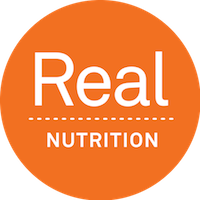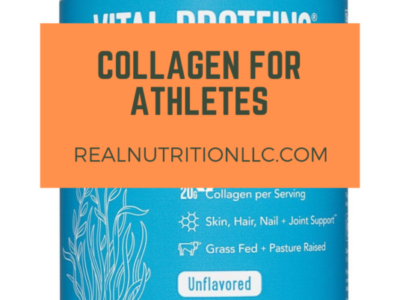Creatine is one of those supplements you seem to hear about a lot. It seems like every strength athlete uses it. But is it right for you? Read on for all the details!
What is creatine?
Creatine is a substance that is part of an energy system in your body, called the phosphagen energy system. This is the energy system that powers intense muscle contractions, such as jumps, lifts, and sprints. It is for short, high-intensity exercises and repeated moves like in strength training.
Research on creatine suggests in may be anti-inflammatory, as well as possibly an antioxidant. It may help alleviate muscle soreness. Research is promising for promoting healing from traumatic brain injury and other brain conditions, but its main use currently is for performance enhancement with intense exercise and training.
You can get creatine in your diet if you eat meat, because animal muscle cells contain creatine. Vegans and vegetarians don’t get creatine in their diet. It’s not a necessary to get it in your diet, but supplementing with creatine may help with strength training and intense workouts.
Is creatine bad for you?
Nope! Creatine is one of the most well-researched supplements, and it has shown to be safe. Creatine doesn’t harm the kidneys, but if you have existing kidney disease, check with your nephrologist before taking this. It is perfectly safe for those people with no kidney problems, but may not be good if you have decreased kidney function.
Does creatine make your muscles bigger?
It MAY if your strength training program is designed correctly for muscle hypertrophy and is supported by proper nutrition. It can assist with muscle building in the sense that it may help you feel like you can lift heavier and go stronger and longer during a session. But taking creatine alone when not combined with an effective and safe strength training program won’t make your muscles bigger.
How should you take creatine?
You can do a “loading dose” of creatine monohydrate 10-20 g per day for 5-7 days–divide this dose into 4 equal daily doses. So take 4-5 grams, four times per day for 5-7 days.
Then taper off into a “maintenance dose” of 3-5 g/day.
You don’t need to take creatine all the time. Use it strategically during a strength or intense phase of your training cycle.
What are the side effects of creatine?
When taking this supplement, you may gain water weight. Some reports are up to two to five pounds (around one to two kg). This isn’t permanent body mass, it’s just water weight that will shed off when you workout. Some people don’t experience this water weight gain. And some experience it but it doesn’t bother them or interfere with their training or performance. Experiment to see what works best for you. Never try anything new, including creatine, on or right before an important event, competition, or race. Always try it in training first!
If you are a pro or elite athlete, check with your sport’s governing body to make sure creatine is allowable. Also be sure to only use creatine that is NSF for Sport or Informed Choice Certified. Supplements often have contaminants, but these two organizations third-party test for purity.
Creatine can be a helpful addition to training if your training involves intense, high-effort bursts of activity, intervals, or strength training.
Want more information? Book an appointment online, follow us on Instagram, or get on our email list at dietitian@realnutritionrdn.com for monthly newsletters, promo codes, and more!
Learn more about creatine for climbers.
~Disclaimer: This is general educational advice and is not intended as specific dietary guidance. Always check with your doctor before adding any supplements or changing anything about your diet, exercise, medication, or supplements.
Photo by Victor Freitas on Unsplash
Check out our amazing nutrition resources, including on-demand courses, free downloads, and webinar replays.
- Nutrition for Climbers
- The Ultimate Guide to Useful Sports Supplements
- Ditch Diets and Become an Intuitive Eater
And be sure to follow us on Instagram!
Book an appointment with the dietitian
References
Benzi G, Ceci A. (2001). Creatine as a nutrition supplementation and medicinal product. Journal of Sports Medicine and Physical Fitness, 41:1-10
de Moraes R, Van Bavel DV, de Moraes BS, Tibiriçá E. (2014). Effects of dietary creatine supplementation on systemic microvascular density and reactivity in healthy young adults. Nutrition Journal, 13:115
Jäger R, Purpura M, Shao A, Inoue T, Kreider RB. (2011). Analysis of the efficacy, safety, and regulatory status of novel forms of creatine. Amino Acids, 40(5):1369-1383
Peeling P, Binnie MJ, Goods PSR, Sim M, Burke LM. (2018). Evidence-based supplements for the enhancement of athletic performance. International Journal of Sports Nutrition and Exercise Metabolism, 28, 178-187
Rawson ES, Miles MP, Larson-Meyer DE. (2018). Dietary supplements for health, adaptations, and recovery in athletes. International Journal of Sports Nutrition and Exercise Metabolism, 28, 188-199





